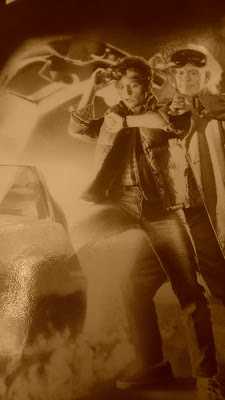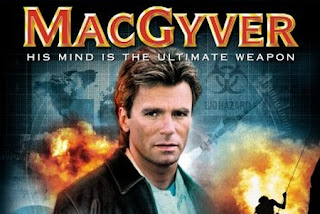Empathy is short lived, if we feel it at all. We have been desensitized to others' pain and suffering because information regarding all of the disasters is constantly at our fingertips. The news is all around us, in coffee shops, at airports, at home. The constant accounts of worry and despair are pushed to each of our pockets or purses a hundred times a day.
This desensitizing warps our grasp of reality. We seldom hear about the good things that go on from one community to the next. This is a big difference from several decades ago, when people's information came from their neighbors and the evening news. Most folks' life experience was largely family, work and community involvement; going to PTA meetings, bake sales, poker nights, church and neighborhood barbecues was how we accumulated info on current events. Crime was relatively low and generally took place in particular, finite areas. Personal interactions were personal. Now, they are filtered through technology. Today, most of our interaction is in the form of texts, emails, Facebook, Twitter, LinkedIn... the list is endless.
There are several explanations for why this is happening. There are also several consequences to what is going on. By being desensitized, we become callous to the pain and anguish others are experiencing. We see trouble for pretends on our favorite TV shows and movies, in video games, and we read about anguish in our favorite novels. We hear about trouble for real on the radio, via internet news outlets and through news programs. Unless it affects us directly, we hear it, feel sad, then move on.
This all happens because of the convenience and appeal of modern technology. Our hunger for the latest gadgets to enhance our connectivity drives engineers to incorporate new features and create new tasks for our devices to accomplish. The consequence is that it increases our susceptibility to self-centeredness. We become somewhat isolated by a wall of technology. The knowledge of disasters, calamities and pestilence we acquire comes via the same device on which we watch things on Netflix, like "The Office" or "Derek". The same device on which we play Angry Birds and Words with Friends, details the circumstances in starving Africa or war-torn Syria.
We are left with a scant bit of knowledge that characters in a distant setting are in distress. Is it real? Is it fake? To our minds and in our spirits, the difference shrinks and becomes indistinguishable. We imagine life must be tough for these people, but we have no personal connection to their plight. We donate to the Red Cross, but the empathy barely remains two minutes after we click 'submit' on our donation. There is so much going on in each of our lives and we hear and see so many different micro-pieces of news each day that it isn't surprising. We can't all care with all our hearts about every single bit of suffering. So what do we do?
Even the most kind-hearted people out there struggle with this dichotomy. They are kind, giving people, but each of us has his or her own life, don't we. We know what we know and we only can do what we can do. So, how can I say that--as a whole--we have become a self-centered species? It certainly is a generalization and I don't pretend that it is anything else but that. But there has to be a balance. There has to be something we can do to still reach out with more of ourselves than our $25 donation to XYZ Storm Relief.
There is a wonderful family who lives in my neighborhood and the wife, Ginger, is one of the greatest people probably ever to be born into this world. She is very sweet, very genuine and she is without guile. To me, Ginger (and people like her) set the example of how we can live in society, being part of the modern world, while still maintaining sincerity in our humanity. What Ginger does is very simple. She cares. She takes the time to thank people when she feels they've enriched her life and she gives of herself constantly. Ginger taught a few of my children at our church. Each week, whatever the topic, she had a little trinket or picture for each of the children to remind them of the principles she taught that day. She did it because she cared.
Each of us can be like Ginger by making an effort to be friendlier or by setting aside the time to be a little more grateful. Because of the optimism with which she approaches life, even when difficulty comes her way, Ginger has always been able to glean valuable lessons from otherwise trying circumstances. It is because of her selflessness and sincerity that she is able to stay grounded. Her focus is not on the latest smartphone, but on the people around her.
 Closing recommendation: Balance. It is okay to put the tablet down or to turn off your phone. There are a lot of people right around you whose lives can be enriched by your presence within them. Learn all you can from the people around you and teach them all the good things you know. By doing so, you can be just as upstanding a person as people were from your grandparents' generation and all good generations prior. Your empathy will increase and you will become a more well rounded individual. This life is bigger than you and me--it is bigger than all of us. Let's do our part to make it better, right here where we can make a difference.
Closing recommendation: Balance. It is okay to put the tablet down or to turn off your phone. There are a lot of people right around you whose lives can be enriched by your presence within them. Learn all you can from the people around you and teach them all the good things you know. By doing so, you can be just as upstanding a person as people were from your grandparents' generation and all good generations prior. Your empathy will increase and you will become a more well rounded individual. This life is bigger than you and me--it is bigger than all of us. Let's do our part to make it better, right here where we can make a difference.
 |
| All the info in the world...at our finger tips. Quantity over quality, perhaps? |
There are several explanations for why this is happening. There are also several consequences to what is going on. By being desensitized, we become callous to the pain and anguish others are experiencing. We see trouble for pretends on our favorite TV shows and movies, in video games, and we read about anguish in our favorite novels. We hear about trouble for real on the radio, via internet news outlets and through news programs. Unless it affects us directly, we hear it, feel sad, then move on.
This all happens because of the convenience and appeal of modern technology. Our hunger for the latest gadgets to enhance our connectivity drives engineers to incorporate new features and create new tasks for our devices to accomplish. The consequence is that it increases our susceptibility to self-centeredness. We become somewhat isolated by a wall of technology. The knowledge of disasters, calamities and pestilence we acquire comes via the same device on which we watch things on Netflix, like "The Office" or "Derek". The same device on which we play Angry Birds and Words with Friends, details the circumstances in starving Africa or war-torn Syria.
 |
| World powers are at odds, wars are being waged, countries are starving. |
Even the most kind-hearted people out there struggle with this dichotomy. They are kind, giving people, but each of us has his or her own life, don't we. We know what we know and we only can do what we can do. So, how can I say that--as a whole--we have become a self-centered species? It certainly is a generalization and I don't pretend that it is anything else but that. But there has to be a balance. There has to be something we can do to still reach out with more of ourselves than our $25 donation to XYZ Storm Relief.
There is a wonderful family who lives in my neighborhood and the wife, Ginger, is one of the greatest people probably ever to be born into this world. She is very sweet, very genuine and she is without guile. To me, Ginger (and people like her) set the example of how we can live in society, being part of the modern world, while still maintaining sincerity in our humanity. What Ginger does is very simple. She cares. She takes the time to thank people when she feels they've enriched her life and she gives of herself constantly. Ginger taught a few of my children at our church. Each week, whatever the topic, she had a little trinket or picture for each of the children to remind them of the principles she taught that day. She did it because she cared.
Each of us can be like Ginger by making an effort to be friendlier or by setting aside the time to be a little more grateful. Because of the optimism with which she approaches life, even when difficulty comes her way, Ginger has always been able to glean valuable lessons from otherwise trying circumstances. It is because of her selflessness and sincerity that she is able to stay grounded. Her focus is not on the latest smartphone, but on the people around her.
 Closing recommendation: Balance. It is okay to put the tablet down or to turn off your phone. There are a lot of people right around you whose lives can be enriched by your presence within them. Learn all you can from the people around you and teach them all the good things you know. By doing so, you can be just as upstanding a person as people were from your grandparents' generation and all good generations prior. Your empathy will increase and you will become a more well rounded individual. This life is bigger than you and me--it is bigger than all of us. Let's do our part to make it better, right here where we can make a difference.
Closing recommendation: Balance. It is okay to put the tablet down or to turn off your phone. There are a lot of people right around you whose lives can be enriched by your presence within them. Learn all you can from the people around you and teach them all the good things you know. By doing so, you can be just as upstanding a person as people were from your grandparents' generation and all good generations prior. Your empathy will increase and you will become a more well rounded individual. This life is bigger than you and me--it is bigger than all of us. Let's do our part to make it better, right here where we can make a difference.




















